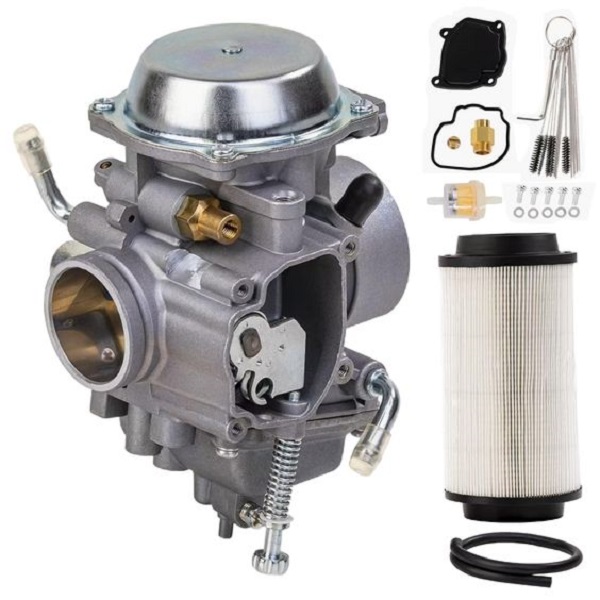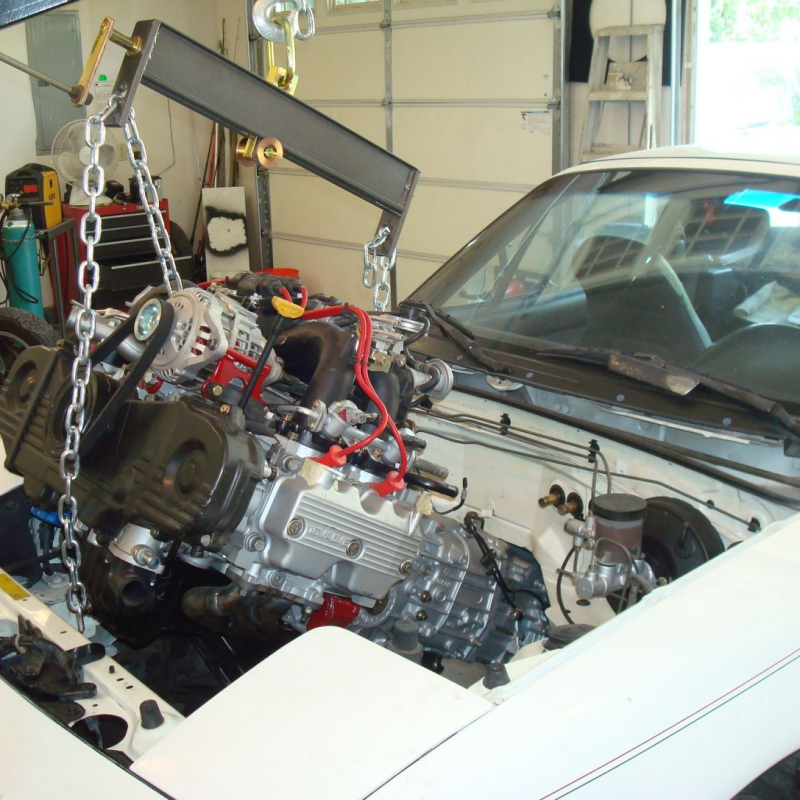What is a small block engine? Small block engines have earned a reputation as the workhorses of the automotive world. Renowned for their balance of power and efficiency, these engines are widely used in various applications, from everyday vehicles to high-performance race cars. In this article, we’ll delve into the details of small block engines, their history, key features, advantages, and more.
The History of Small Block Engines
1. Early Development
Small block engines first appeared in the 1950s, primarily designed for efficiency and compactness. The most notable early model was Chevrolet’s small block V8, introduced in 1955. This engine quickly gained popularity due to its lightweight design and impressive performance, revolutionizing the automotive landscape.
2. Evolution Over the Years
Over the decades, small block engines have undergone significant improvements. Innovations in fuel injection, turbocharging, and materials have enhanced their power output and fuel efficiency. Today, small block engines can be found in a variety of vehicles, from trucks to sports cars, proving their versatility.
Key Features of Small Block Engines
1. Compact Design
One of the standout features of small block engines is their compact design. This allows for better weight distribution in vehicles, improving handling and overall performance. The smaller footprint also makes them easier to fit into tight engine bays, allowing for more versatile vehicle designs.

2. V8 Configuration
Most small block engines follow a V8 configuration, consisting of eight cylinders arranged in a “V” shape. This design not only provides more power compared to smaller engines but also ensures smoother operation, resulting in a more enjoyable driving experience.
3. Lightweight Materials
Modern small block engines utilize lightweight materials such as aluminum for their engine blocks and heads. This reduction in weight enhances fuel efficiency and performance while maintaining structural integrity.
Advantages of Small Block Engines
1. Power-to-Weight Ratio
Small block engines offer an impressive power-to-weight ratio, making them ideal for performance vehicles. With the ability to produce substantial horsepower while remaining lightweight, these engines excel in both acceleration and handling.
2. Versatility in Applications
From everyday commuters to high-performance racers, small block engines are adaptable to various applications. Their design allows for modifications, making them suitable for a wide range of performance upgrades.
3. Fuel Efficiency
In recent years, advancements in technology have improved the fuel efficiency of small block engines. With features such as direct fuel injection and variable valve timing, these engines deliver impressive mileage without sacrificing power.
Popular Small Block Engine Models
1. Chevrolet Small Block V8
The Chevrolet small block V8 is perhaps the most iconic small block engine. Known for its reliability and performance, it has been a favorite among enthusiasts for decades. With various configurations and displacements, this engine continues to power a wide range of vehicles.
2. Ford Modular Engine
Ford’s Modular engine series includes a small block variant that has gained popularity in recent years. This engine is known for its smooth operation and high-revving capabilities, making it a strong contender in the performance market.
3. Dodge 5.7L HEMI
Dodge’s 5.7L HEMI is another popular small block engine that combines power with modern technology. Featuring a unique cylinder deactivation system, it provides excellent fuel economy without compromising performance.

How to Choose the Right Small Block Engine for Your Needs
1. Assess Your Driving Style
Consider how you plan to use your vehicle. If you’re seeking a high-performance setup for racing, focus on engines designed for power. Conversely, if your primary goal is fuel efficiency for daily commuting, select a model that prioritizes mileage.
2. Consider Compatibility
Ensure that the small block engine you choose is compatible with your vehicle. Check the engine bay dimensions, transmission compatibility, and any additional modifications needed for installation.
3. Explore Performance Upgrades
Many small block engines offer a range of performance upgrades. From exhaust systems to tuning chips, these enhancements can significantly boost your engine’s performance. Research available options to find the best fit for your goals.
Maintenance Tips for Small Block Engines
1. Regular Oil Changes
Frequent oil changes are crucial for maintaining the health of your small block engine. Using high-quality oil will ensure optimal performance and longevity. Aim for oil changes every 3,000 to 5,000 miles, depending on your driving conditions.
2. Monitor Engine Temperature
Keep an eye on your engine temperature, especially during long drives or in hot weather. Overheating can lead to severe damage, so ensure your cooling system is functioning correctly and consider adding a high-performance radiator if necessary.
3. Check Spark Plugs and Wires
Regularly inspect your spark plugs and ignition wires for wear. Replacing them as needed can improve engine performance and fuel efficiency.
The Future of Small Block Engines
1. Hybrid Technologies
As the automotive industry evolves, small block engines are adapting. Many manufacturers are exploring hybrid technologies, integrating electric motors to enhance fuel efficiency and reduce emissions. This trend could extend the life of small block engines while meeting modern environmental standards.
2. Enhanced Performance Features
Innovations in turbocharging and supercharging are also becoming more common in small block engines. These technologies can significantly increase horsepower and torque, making them even more appealing to performance enthusiasts.
3. Sustainable Materials
The push for sustainability is leading to the use of eco-friendly materials in engine production. Expect to see more manufacturers adopting recycled and sustainable materials in small block engine construction, promoting a greener future.
Performance Enhancements for Small Block Engines
1. Upgrading the Exhaust System
An aftermarket exhaust system can significantly improve your small block engine’s performance. High-performance headers and cat-back systems enhance exhaust flow, reducing back pressure and increasing horsepower. When choosing an exhaust system, consider options that balance sound and performance, ensuring a thrilling driving experience without excessive noise.
2. Air Intake Modifications
A performance air intake system can boost engine efficiency by allowing for better airflow. High-flow air filters and cold air intakes are popular choices. These modifications can help your engine breathe easier, leading to improved throttle response and overall power output.
3. Tuning for Maximum Performance
After making modifications, tuning your engine is essential. A proper tune optimizes fuel-air mixtures and ignition timing, allowing your engine to reach its full potential. Many aftermarket tuning options are available, from handheld programmers to more complex engine management systems.
The Impact of Small Block Engines on Motorsports
1. Dominance in Racing
Small block engines have dominated various motorsports categories, including NASCAR and drag racing. Their combination of lightweight design and powerful output makes them a preferred choice among racers. The success of small block engines in these settings has solidified their reputation as performance powerhouses.

2. Customization in Racing
In the racing world, small block engines can be extensively customized to meet specific performance goals. Builders often modify components such as camshafts, pistons, and crankshafts to tailor the engine’s characteristics for different racing formats. This level of customization allows racers to squeeze every ounce of power from their small block engines.
3. The Rise of Engine Swap Culture
The small block engine has become a favorite for engine swaps due to its versatility. Enthusiasts often replace factory engines with small blocks to enhance performance. This trend has led to a thriving community of builders and modifiers, showcasing the adaptability and potential of small block engines across various vehicle platforms.
Conclusion
Small block engines remain a vital part of the automotive world, offering a blend of power, efficiency, and versatility. Whether you’re an everyday driver or a performance enthusiast, understanding the intricacies of small block engines can enhance your driving experience. By considering factors like engine selection, maintenance, and future technologies, you can make informed decisions that align with your automotive needs.



